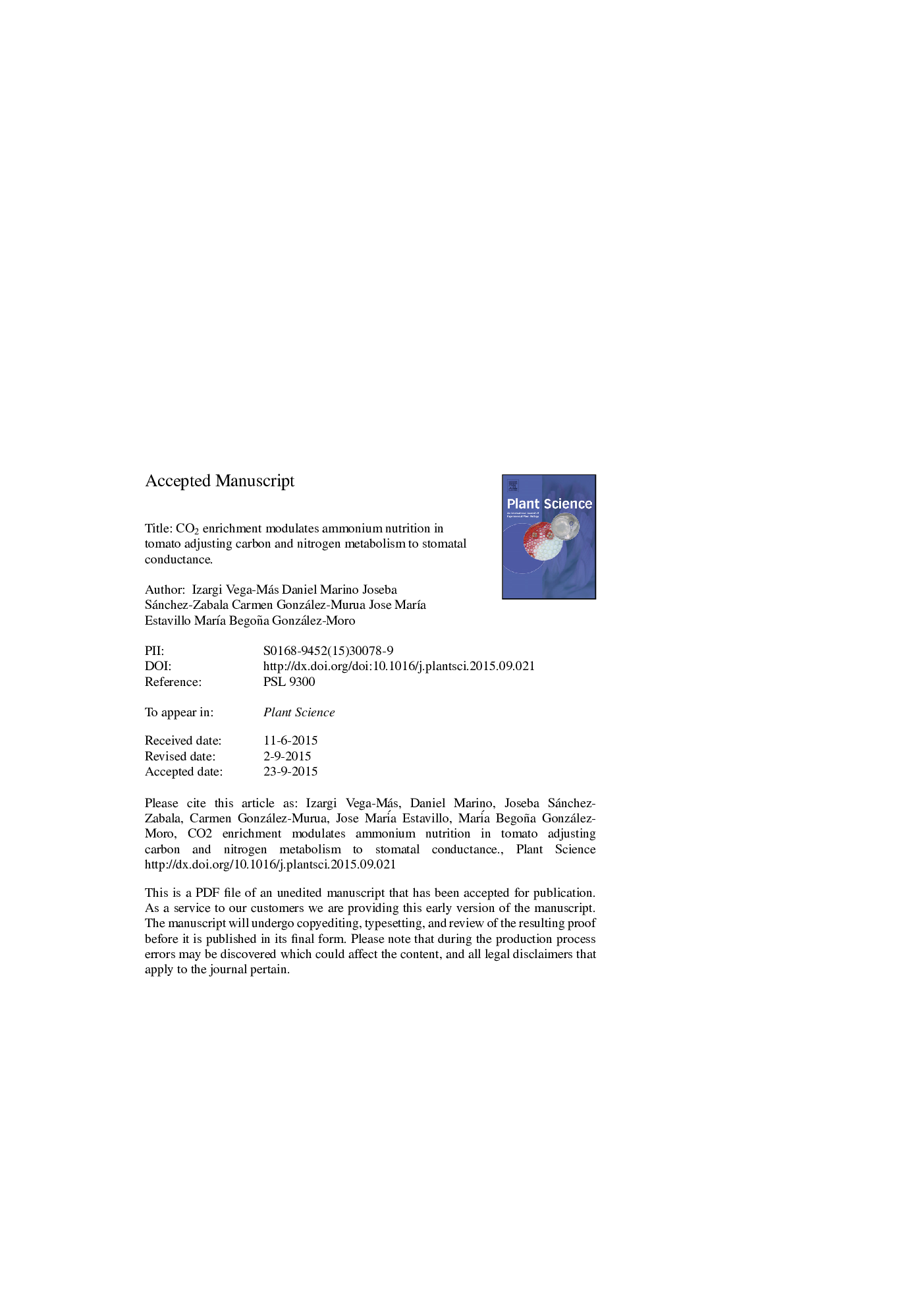| Article ID | Journal | Published Year | Pages | File Type |
|---|---|---|---|---|
| 8357403 | Plant Science | 2015 | 30 Pages |
Abstract
Ammonium (NH4+) toxicity typically occurs in plants exposed to high environmental NH4+ concentration. NH4+ assimilating capacity may act as a biochemical mechanism avoiding its toxic accumulation but requires a fine tuning between nitrogen assimilating enzymes and carbon anaplerotic routes. In this work, we hypothesized that extra C supply, exposing tomato plants cv. Agora Hybrid F1 to elevated atmospheric CO2, could improve photosynthetic process and thus ameliorate NH4+ assimilation and tolerance. Plants were grown under nitrate (NO3â) or NH4+ as N source (5-15Â mM), under two atmospheric CO2 levels, 400 and 800Â ppm. Growth and gas exchange parameters, 15N isotopic signature, C and N metabolites and enzymatic activities were determined. Plants under 7.5Â mM N equally grew independently of the N source, while higher ammonium supply resulted toxic for growth. However, specific stomatal closure occurred in 7.5Â mM NH4+-fed plants under elevated CO2 improving water use efficiency (WUE) but compromising plant N status. Elevated CO2 annulled the induction of TCA anaplerotic enzymes observed at non-toxic NH4+ nutrition under ambient CO2. Finally, CO2 enrichment benefited tomato growth under both nutritions, and although it did not alleviate tomato NH4+ tolerance it did differentially regulate plant metabolism in N-source and -dose dependent manner.
Keywords
NADP-dependent isocitrate dehydrogenaseICDHGS2OxaloacetateOAANADP-MEPEPCMDHSolanum lycopersicum L.GS1GDHNADP-dependent malic enzymeTCANAD-MEcytosolic glutamine synthetaseWUEElevated CO2Water use efficiencyAmmonium toleranceNitrate nutritionNitrogen assimilationintercellular CO2 concentrationmalate dehydrogenaseTCA cycletricarboxylic acid cycleglutamate dehydrogenase
Related Topics
Life Sciences
Agricultural and Biological Sciences
Plant Science
Authors
Izargi Vega-Mas, Daniel Marino, Joseba Sánchez-Zabala, Carmen González-Murua, Jose MarÃa Estavillo, MarÃa Begoña González-Moro,
